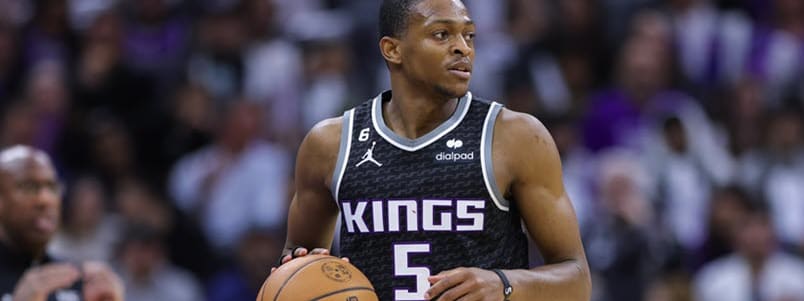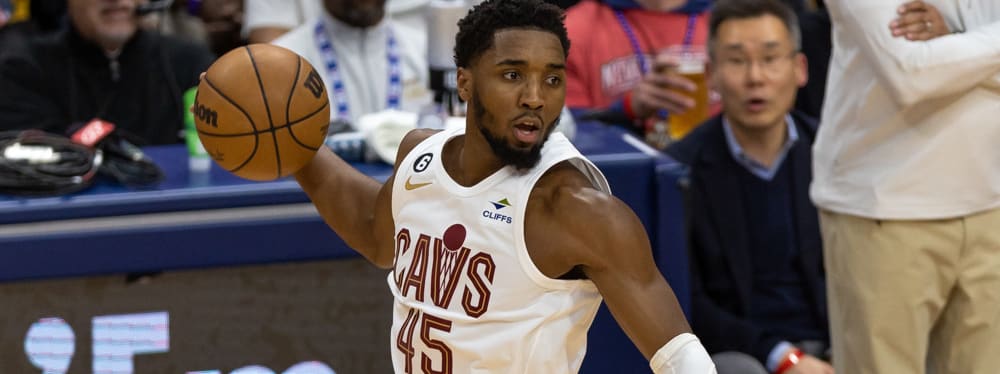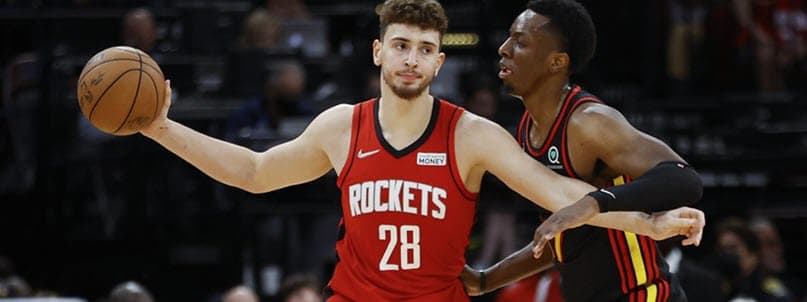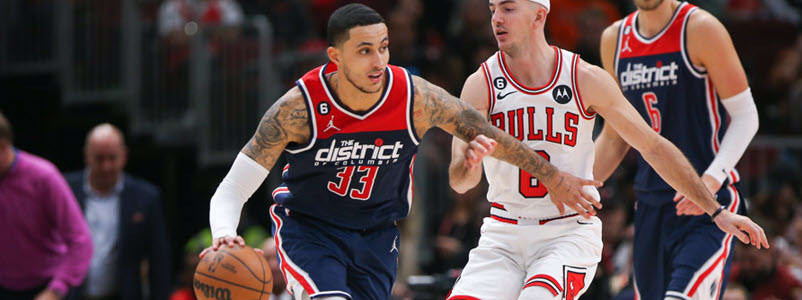Recent RotoWire Articles Featuring Will Barton
See More
The 2021-22 campaign marked Barton's last season in Denver following eight years of service, as he was dealt to the Wizards this summer. Injuries and a fluctuating role often made him a tough player to roster in fantasy, but he was productive overall. In his 479 appearances (279 starts) with the Nuggets, he averaged 14.0 points on 44/36/79 shooting, 5.0 rebounds and 3.3 assists in 30.4 minutes. In eight-category roto leagues, he ranked as high as 53rd and as low as 193rd on a per-game basis, finishing with an average rank of 108th. In Washington, it appears he has a chance to start at small forward, though he'll be competing against Rui Hachimura and Deni Avdija, and it's possible coach Wes Unseld Jr. would prefer Barton as a sixth man off the bench. Either way, given how thin this Washington roster is, Barton should continue seeing minutes in the mid-to-high 20s consistently, if not more. There's back-end standard league relevance to be had, so selecting Barton with a closing pick makes sense.
Barton has been one of the most up-and-down fantasy players on a year-to-year basis since joining the Nuggets. That's partially due to his injury history, as he's played just 157 games in the past three seasons. Putting injuries aside, he ranked 193rd in 2018-19 on a per-game basis, 71st in 2019-20 and 147th last year. Despite the injury issues and inconsistent play, Barton and the Nuggets agreed to a two-year, $32 million deal in the 2021 offseason. With all of the warning signs in mind, the soon-to-be 31-year-old has potential to have the best season of his career. The Nuggets will be without Jamal Murray (knee) for much of the 2021-21 season, which should put the ball in Barton's hands more often. With Murray off the court last season, Barton averaged 16.6 points, 4.6 rebounds, 4.3 assists and 1.2 steals per 36 minutes. While the Nuggets do have other playmaking options -- Monte Morris, Facundo Campazzo, Austin Rivers and even Aaron Gordon -- Barton is an excellent multi-position glue piece that can do a bit of everything offensively. Fantasy managers should understand the risk before drafting Barton, but he qualifies as a late-round sleeper this season. He's ranked as high as 53rd in fantasy, which was during the 2017-18 season when he averaged 15.7 points, 5.0 rebounds, 4.1 assists and 1.0 steals in 33.1 minutes.
Despite underperforming in the previous season, Barton bounced back and staved off any competition to start in all 58 games he was healthy for, posting 15.1 points, 6.3 rebounds and 3.7 assists per game while hitting 45 percent of field goals. He also connected on a career-high 37.5 percent of shots from beyond the arc. Nevertheless, his playing time is in question again ahead of the 2020-21 campaign since Michael Porter is healthy and now has 55 NBA games under his belt. Barton's consistency makes a serious case to be the first man off the bench in the front court. His upside is severely hampered, though, and fantasy managers should factor that into the equation when taking him at the tailend of the top-100.
With expectations sky-high, Barton had a disappointing 2018 campaign. A hip injury suffered in the second game of the season caused Barton to miss 38 straight contests and 40 total on the year, and he played his fewest games since 2013. The injury factored significantly into his underwhelming play. Barton shot just 40.2 percent from the floor, his lowest mark since his rookie season. His 34.2 percent shooting from three was his lowest since 2015 -- his first full season with the Nuggets. Barton averaged 11.5 points, 4.6 rebounds, 2.9 assists and 1.6 threes in 2018-19, which were decreases from 2017-18 in every category. It's important to note, however, that Barton's 27.7 minutes per game were his fewest since 2015. He actually averaged 15.0 points, 6.0 rebounds, 3.8 assists and 2.0 threes per 36 minutes in 2018-19 -- almost identical to his numbers from 2017-18. That's very encouraging for Barton's outlook as he heads into the new season with more competition than ever for playing time. He might be replaced by Torrey Craig in the starting five after yielding playing time to Craig toward the end of last season. Michael Porter Jr. could also eat into Barton's playing time if the former can finally get on the court. Assuming he's not hampered by injury in 2019-20, Barton has a chance to return similar production to what he averaged from 2015-2017 with Denver, though his place on the depth chart and his role in the rotation will ultimately determine his fantasy value.
In a super-sixth-man role, Barton started 40 of his 80 appearances for the Nuggets last season, seeing 33.1 minutes per tilt -- a role that will only be expanded with the departure of Wilson Chandler to Philadelphia via trade. Barton’s Fantasy value comes from his all-around playstyle. In 2017-18, the 27-year-old averaged 15.7 points, 5.0 rebounds, 4.1 assists and 1.0 steal -- being one of only 15 players to do so. That list shortens to eight players when including Barton’s 1.9 threes per tilt. He’s also stayed relatively healthy over the past three seasons, missing just 23 games. Plus, due to his dynamic skillset, Barton is often the player who sees extra usage when a backcourt or wing player goes down due to injury. There were 14 occasions last season where Barton saw at least 40 minutes, averaging 20.1 points, 6.1 rebounds, 5.4 assists and a combined 2.4 steals/blocks in those contests. Overall, he should be ready to improve on an already ascending career in 2018-19.
Barton has been a better-than-average bench player in the league over recent seasons, as he has seen a major increase in numbers over the past two years. Barton is posting averages of 14.1 points, 5.2 rebounds, 2.9 assists, 0.9 steals and 0.5 blocks per game in 28.0 minutes of action during that two-year span. His 3.4 assists per game last season were a career-high and that may be his biggest weapon coming off the bench. A pseudo guard-forward who can distribute and score is what makes him so valuable and Barton may see an increase in production with Danilo Gallinari out of the picture. That's 34.0 minutes and 18.2 points per game that needs to be made up, and Barton should be one of the main beneficiaries with no other legitimate small forwards added to the roster. Barton may even handle the ball for the second-unit, as he's proven in the past that he can run an offense off the bench.
After excelling in a bench role in 28 games for Denver in 2014-15 after coming over from Portland at the trade deadline, Barton took his productivity up a notch last season while settling in as the Nuggets' sixth man. Barton appeared in all 82 games, averaging 14.4 points, 5.8 rebounds and 2.5 assists per contest while shooting 43.2 percent from the floor and 34.5 percent from three-point range. He was particularly hot early in the season, compiling averages of 15.5 points, 6.0 rebounds and 2.4 assists per game in 54 outings before the All-Star break. His numbers tailed off a bit in the second half, but Barton remains one of the NBA's best values, with the Nuggets owing him just over $7.1 million over the next two seasons. From a pure production standpoint, there's plenty like about Barton, but he'll find himself in a crowded wing rotation this season. The Nuggets added Jamal Murray and Malik Beasley in the backcourt via the draft, while forwards Danilo Gallinari and Wilson Chandler are expected at full strength after missing a combined 132 games in 2015-16. If both Gallinari and Chandler are able to stay healthy, it may be difficult for Barton to approach the career-high 28.7 minutes per game he averaged last season. Still, he's enough of an all-around producer to warrant a mid-to-late-round selection on draft day.
It appeared as if the Nuggets got very little in return when they traded Arron Afflalo to Portland last season, but Barton ended up being a steal and a nice addition to the Denver roster. After being stuck in a limited role with the Blazers averaging just 12 minutes per game, Barton averaged 24 minutes in his 28 games with the Nuggets. Along with doubling his minutes, he destroyed his career averages across the board, averaging 11.0 points, 4.6 rebounds, and 1.9 assists per game. He also shot 44 percent from the field to go along with 81 percent from the line. Barton also averaged 1.2 steals, and 0.5 blocks a game and proved to be an energy-provider that the Nuggets desperately needed. He plays a lot like former-Nugget Corey Brewer, and his biggest asset to the team is energy and hustle. Look for Barton to be a spark-plug off the bench for Denver this season and provide valuable minutes when the Nuggets need a boost off the bench.
Entering his third NBA season, Will Barton has his work cut out for him in his quest to break into the Blazers' deep guard rotation. After averaging 4.0 points, 1.8 rebounds, and 0.8 assists in nine minutes across 41 games last season, the 23-year-old's primary offseason aim was to improve as a facilitator, but in five outings at the Las Vegas Summer League, his ball handling wavered, as he totaled 15 assists versus 19 turnovers. Otherwise, his tendencies included double-digit scoring (14.4 points on 38-percent shooting), at least four rebounds (6.4 average), 1.2 steals, and exactly 1.0 three-pointer per contest. He'll be hard-pressed to tear away minutes from Steve Blake and CJ McCollum behind All-Star point man Damian Lillard, seemingly containing Barton's appearances to garbage time and openings following a potential injury to one of Portland's guards. On the other hand, if he's able to scrounge up consistent playing time, the 6-6, 174 pound Barton has displayed a knack for rebounding, ringing in with a LeBron James-esque 6.2 rebounds per 36 minutes in his career.
The 40th selection in the 2012 draft, Barton averaged 15 points (on 44.4 percent shooting) and 4.4 boards over five tilts during Summer League action. He may not earn many minutes behind Matthews, Batum, or Nolan Smith at the two, but he should nonetheless have some memorable garbage-time performances.













